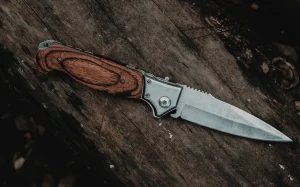Recreational marijuana will be sold legally in New Jersey for the first time on April 21, nearly a year and a half after voters approved a ballot question allowing the substance to be sold to people aged 21 and over.
Also read: ‘If Finland, Sweden join NATO’: What to make of Russia’s nuclear threat?
On Wednesday afternoon, New Jersey Gov. Phil Murphy announced the state’s plans to continue forward.
Residents in New Jersey couldn’t help but notice that the date occurs a day after 4/20, which is an unofficial pot celebration.
The state’s Cannabis Regulatory Commission, which has been in operation for a year, has been continually stymied by efforts to develop a regulatory framework that meets the program’s social equity aims while also ensuring that medical marijuana patients continue to have priority access.
Also read: Not all the Russian president’s men are sure of war; doubt may prove fatal
Progress was also hampered by several towns’ refusal to participate in the initiative, which complicated the permitting procedure for cultivators.
Beginning April 21, seven owners who already operate medicinal marijuana shops will be permitted to sell recreational marijuana. Three of the operators are located in South Jersey, three in North Jersey, and one in the centre of the state. The following are their 13 combined locations:
•Vineland, Deptford — operated by Columbia Care
•Bellmawr, Edgewater Park — operated by Curaleaf
•Egg Harbor Township, Williamstown – operated by Acreage
•Elizabeth, Lawrence — operated by Verano (Zen Leaf)
•Bloomfield, Paterson — operated by GTI (RISE)
•Rochelle Park — operated by Ascend
•Phillipsburg, Maplewood — operated by TerrAscend
New Jersey’s medicinal marijuana programme, which was passed into law in 2010, has grown to serve around 130,000 patients over the years. All of the recreational marijuana facilities that have been permitted have promised to reserve parking and keep hours that are purely for medical patients.
Also read: A 100 million voicemails: How a Russian lawmaker tried influencing Congress
The state estimates that there will be up to 800,000 recreational marijuana users, in addition to thousands of others who will travel out of state to purchase the drug.
The bill includes a 6.625 percent sales tax on recreational marijuana, as well as a 2 percent restriction on local taxes. The programme will direct 70% of the earnings to areas of New Jersey with disproportionately high rates of marijuana-related arrests, which have affected Black residents nearly three times more than white ones.
Also read: Geopolitics at heart of US’ human rights worries, India’s hate crime retort
Given the program’s early stage, Murphy’s fiscal year 2023 budget estimates just around $19 million in revenue from recreational marijuana sales, significantly less than the $60 million projection provided in the run-up to the 2020 ballot question, according to the Associated Press.
New Jersey is one of 18 states and the District of Columbia that have legalised recreational marijuana use.






